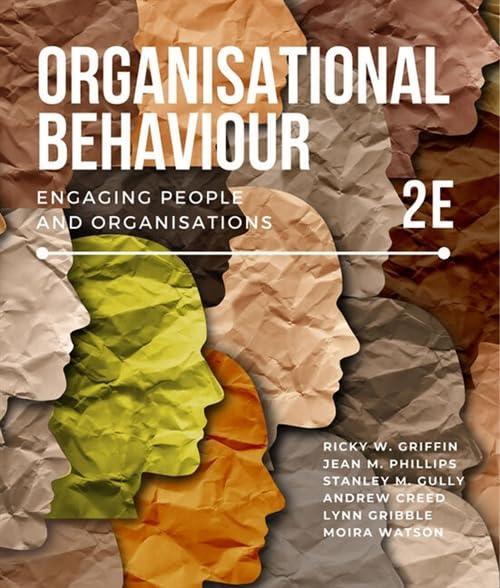Considering conflict from a critical perspective involves a focus on the key concept of power in social
Question:
Considering conflict from a critical perspective involves a focus on the key concept of power in social relationships. That power may be expressed either covertly or overtly. The location of power and who uses it or who doesn’t are fundamental considerations. Power isn’t seen as necessarily bad but is recognised as a principal dynamic underpinning social relationships and thus, in some form, the basis of conflict. Understanding how the power is distributed in any conflict circumstance requires consideration of, for example, economics, history, politics, culture, gender, race, sexual orientation or privilege. Through such an examination, the critical perspective enables a deeper understanding of the values, beliefs, perceptions, choices and behaviours that are guiding the parties in a given situation. Rather than seeking to only resolve the particular conflict circumstance, a critical perspective seeks to unearth and tend to the fundamental roots of conflicts. It is recognised that although individuals or groups may be involved in conflict and at the time their actions represent their current concerns, this conflict relationship stems from the societal structures shaping their behaviours. Being aware of the forms of power underpinning the conflict enables the parties to better understand how their thoughts, feelings and actions are being affected, and to facilitate resolution. Seeing conflict as a social phenomenon rather than just a particular individual or group event enables consideration of how the conflict behaviours of a circumstance are shaped by the context in which the organisation is operating. Conflict is inevitable and occurs as part of the everyday operations of the organisation. It is not considered an unusual case to be treated in distinct ways. Understanding that conflict is part of the social fabric of organisational life highlights the analyses of matters that contribute to the conflict, shape its form and propel its course. How the parties construe a specific conflict, speak about the conflict and take action in the conflict all identify how the conflict is perceived and expressed. A critical perspective considers conflict inevitable and often sees it as the only way to change the organisation. Resistance is a key consideration, with attention being paid to whether or not, and how, people resist. Resistance is not just action taken in opposition to a particular event; rather, it can be perceived as an ongoing struggle by participants who are trying to achieve desired goals. These goals can vary and there are different conflict paths to their achievement. Varied possibilities involve different levels and types of conflict and open opportunities for negotiation.
Reflection question
How does this critical perspective cause you to think differently about the role of power in conflict circumstances?
Step by Step Answer:

Organisational Behaviour Engaging People And Organisations
ISBN: 272389
2nd Edition
Authors: Ricky W. Griffin, Jean M. Phillips, Stanley M. Gully, Andrew Creed, Lynn Gribble, Moira Watson





